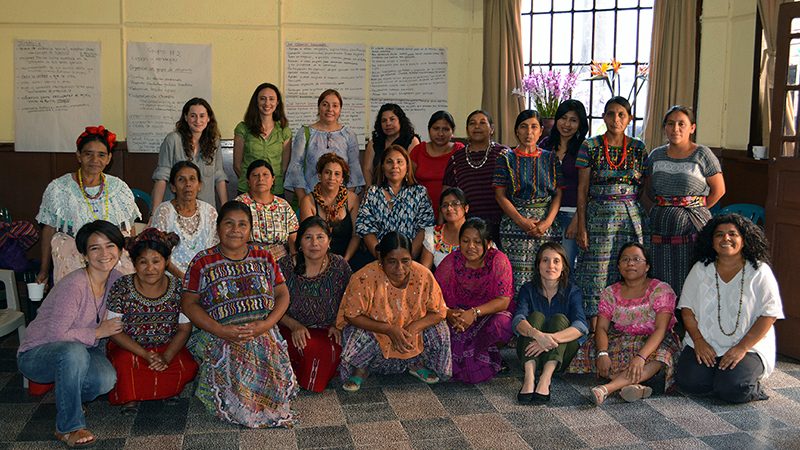Before his death in 1998, Roman Catholic Archbishop and human rights defender Juan José Gerardi Conedera was one of the strongest voices speaking out against the atrocities committed during the internal armed conflict. Following the January 1980 burning of the Spanish Embassy which resulted in the death of some 39 people, Gerardi, then Bishop of El Quiché, issued a statement condemning these acts of violence as well as the innumerable human rights abuses occurring on a daily basis at that time. As a consequence of his outspoken opposition, Gerardi received a number of death threats and was forced to live in exile while President Romeo Lucas García remained in power.
Gerardi was appointed Auxiliary Bishop of the Archdiocese of Guatemala in 1984 and in 1989 he oversaw the creation of the Human Rights Office of the Archbishop of Guatemala (ODHAG). His most important work, however, was the Recovery of Historical Memory project (REMHI). Gerardi committed himself fully to this project with the intention of exposing the truth of what happened during the armed conflict so that the people of Guatemala would never again suffer such a tragedy. The project, which began even before the official end of the conflict, included hundreds of interviews conducted by Gerardi and his colleagues in which Guatemalans from all over the country described their experiences and identified the perpetrators.
On April 24, 1998, Gerardi presented the findings of the REMHI project in a report entitled “Nunca Más” (Never Again). The report was particularly damning to the Guatemalan military and it paved the way for future historical recovery work surrounding the conflict such as the UN-sponsored Historical Clarification Commission (CEH) which was created as part of the 1996 peace process. REMHI’s report found that the military was responsible for 85% of the human rights violations committed during the 36-year period of civil war and that the guerrilla groups were responsible for 9%. Later findings by the CEH actually attributed an even higher number of violations to the Guatemalan army (93%, and only 3% committed by the guerrillas). The report was especially controversial because it was the first to provide the names of the implicated individuals. More than 1,000 individuals and military members were named in the report.
On April 26, 1998, two days after the release of the report, Bishop Gerardi was bludgeoned to death in his home in Guatemala City. This brutal murder of such a prominent Guatemalan figure was not handled professionally by either the police or the authorities, who failed to immediately link the murder to his political activities. Despite Guatemala’s unfortunate tendency for impunity in cases of violence against human rights defenders, three former military officers were eventually convicted of murdering Gerardi on June 8, 2001. The three officers were Col. Byron Disrael Lima Estrada, his son, Capt. Byron Lima Oliva and José Obdulio Villanueva. The historic trial was the first time high-ranking military officials had been tried since the 1996 ruling that removed exclusive military tribunal jurisdiction for officers accused of civilian crimes.
The three men were originally sentenced to 30 years in prison but Villanueva has since died and, in 2005, the Limas had their sentences reduced to only 20 years. The fact that these men were found guilty of the murder was a step forward for justice in Guatemala; however, this victory is hampered by the reduction in their sentences as well as the fact that the “intellectual author” of the crime was never found nor has there been an effort on the part of the Guatemalan government to expose the full conspiracy of the murder. Francisco Goldman’s 2007 book, The Art of Political Murder: Who Killed the Bishop?, alleges that the current President of Guatemala, Otto Pérez Molina, was involved in Gerardi’s murder. The elder Lima was released from prison in 2012 for good behavior and, until recently, his son enjoyed the freedom to go and come as he pleased and continued to orchestrate a number of illegal activities from prison.

